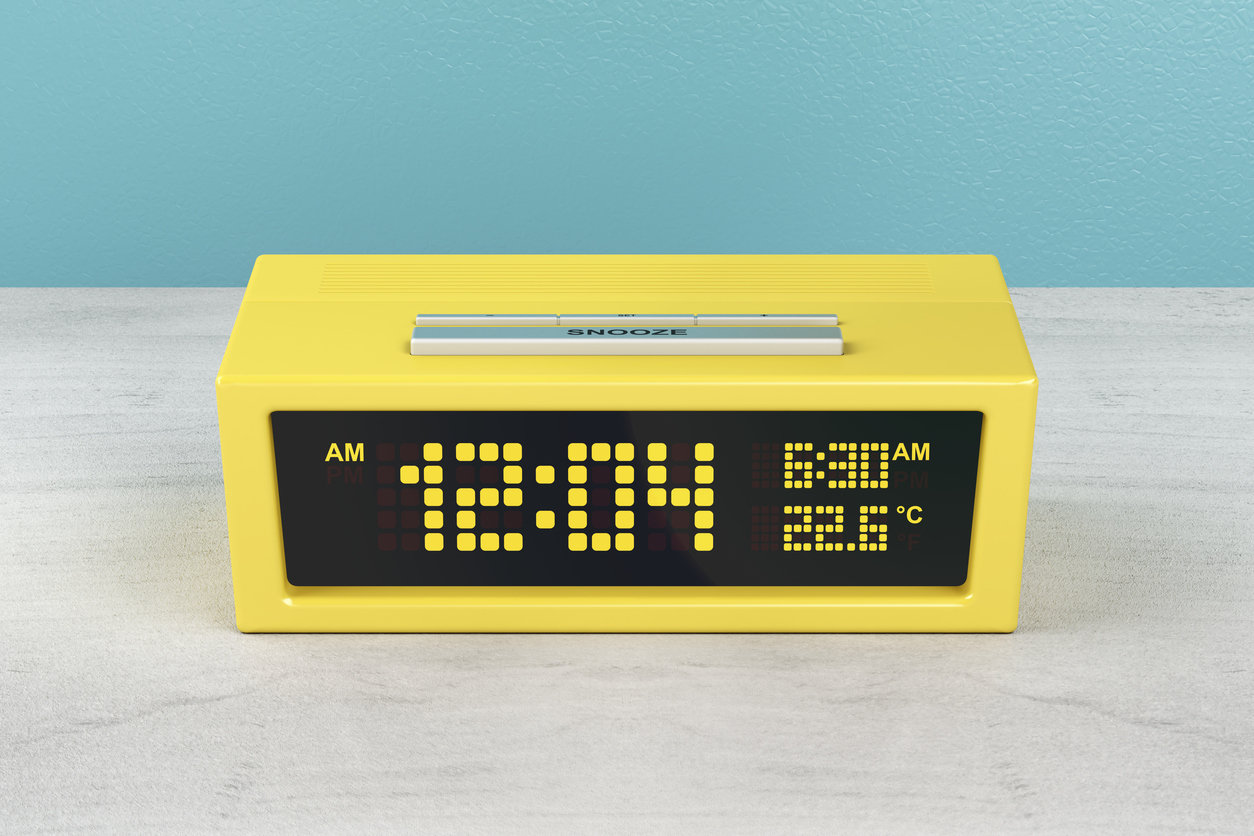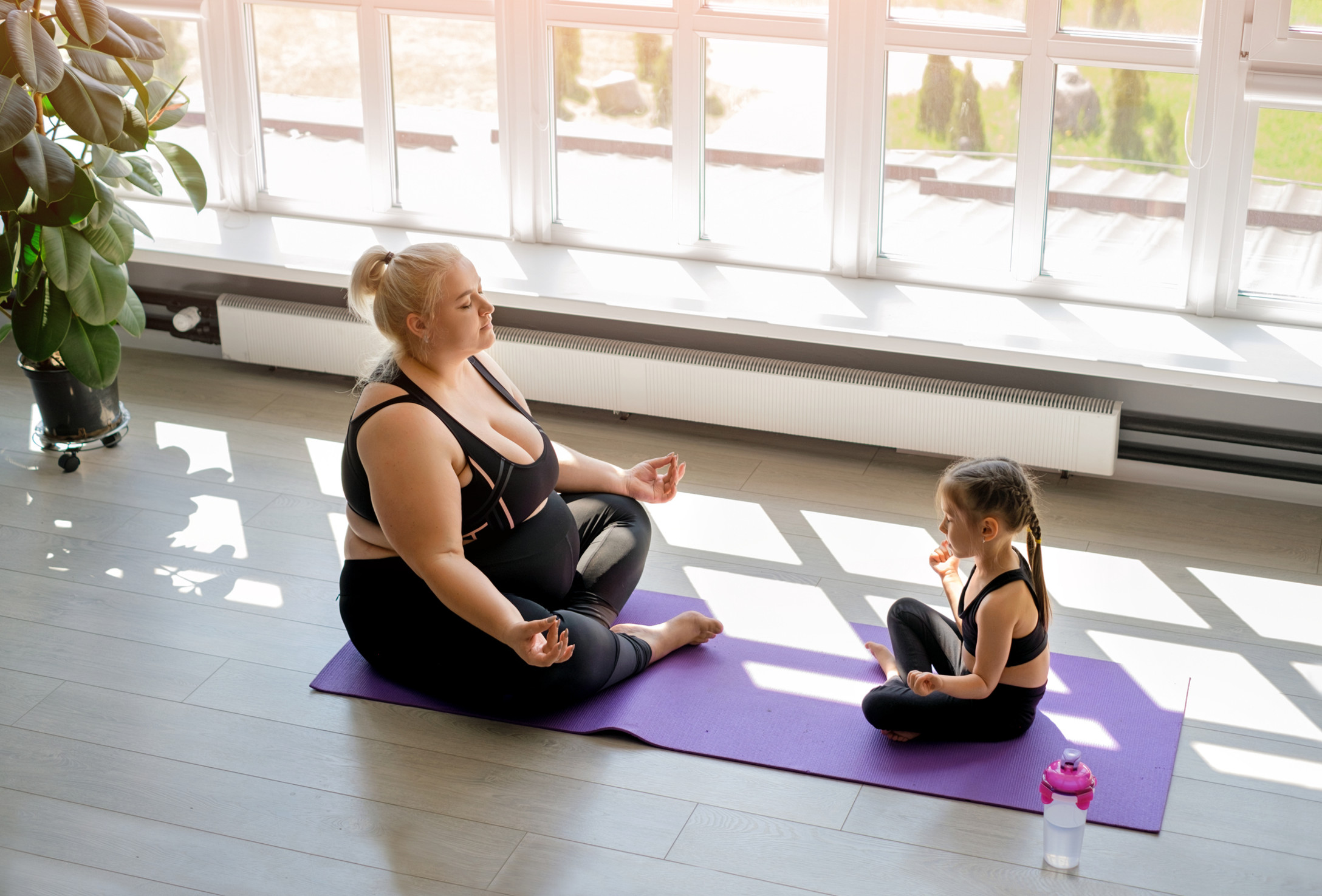
Busy days jammed-pack with work, kids and activities often cause our brains to stay active at night. It keeps us from getting the sleep we need to feel energized and ready for the day.
Having good sleep habits we can stick to can help us mentally recharge and deal with stress better. Start the new year with a better night's sleep with these 10 tips.
Pick & Set a Bedtime

Every morning, most of us press snooze on our alarms so we can catch a few more minutes of sleep. But wouldn't it be better if we woke up feeling refreshed without wanting to stay in bed?
Aim to start your bedtime routine at the same time every night so it prepares your body to feel tired when it's time to go to sleep. In turn, this will also help your body wake up at the same time every morning.
Limit Screen Time During the Bedtime Routine

We all love scrolling through our phones to catch up on social media or watching Netflix before bed. But screens emit a blue light that causes your brain to think it's actually daytime, making your body suppress the production of melatonin. With less melatonin, you're more likely to stay awake.
Avoid Heavy Meals or Drinking Late in the Day

Ever come home from a late dinner with some drinks and struggled to fall asleep while heartburn and an upset stomach kept you up all night?
Consuming a large meal and alcohol before bed can create digestion issues and make it difficult to fall asleep. Try to have your last large meal at least a few hours before bedtime.
Enjoy a Light Snack or Calming Tea

If you go to bed hungry, you might end up tossing and turning from the sounds of your stomach growling. If you're the type who feels peckish before bed, ease your hunger pangs with a light snack like fruit or yogurt. An herbal tea without caffeine, such as chamomile, can also help calm the nerves and prepare your mind for rest.
Listen to Soothing Music

Ever dozed off while listening to jazz or piano music? Music is a wonderful way to calm the brain, relax your body, and keep those worrying thoughts from intruding on your mind. Make sure the music isn't too catchy or energetic that you want to start singing and dancing along.
Write a Journal Entry or Jot Down the Next Day's To-Do List

Moms carry a mental load of planning, schedules, and plans for planning. We are organized beasts. But thinking about those tasks can keep us up at night. Instead, take five minutes to write down tomorrow’s list of to-do's so you’re not fretting over whether you’ll remember to schedule your kid’s dentist appointment. You’ll feel reassured because you’ve written it down already.
Avoid Strenuous Exercise an Hour Before Bed

There's a reason we feel pumped after a vigorous workout such as strength training, going for a run, or finishing a spin class. But strenuous exercise before bed can increase your heart rate and make it difficult for your nervous system to wind down. Doing regular physical activity is a great way to improve your sleep, just make sure you finish your workout at least 60 minutes before bedtime.
Incorporate a Yoga or Meditation Practice

Although going for a jog isn't a good idea before bed, doing some light stretching, meditation, or breathing exercises can help induce those sleepy vibes. Practicing these relaxation techniques can help you fall asleep quicker, manage stress, and improve the quality of sleep.
Read a Favorite Book

Reading a story to your child before bed often helps the little one fall asleep. And it can work for adults, too. Just make sure it's not one that is too thrilling or intense that you end up staying up the whole night to finish the book.
Create a Sleep-Inducing Bedroom

The most comfortable sleep environment is one that is dark, quiet, and not too hot or too cold, just like Baby Bear's porridge. Turn off the lights. Draw the blinds and/or curtains. Declutter your sleep space. Shut down noise-making devices. Put on earplugs and/or an eye mask. Go to sleep.
*Disclaimer: The advice on CafeMom.com is not a substitute for consultation with a medical professional or treatment for a specific condition. You should not use this information to diagnose or treat a health problem without consulting a qualified professional. Please contact your health-care provider with questions and concerns.




